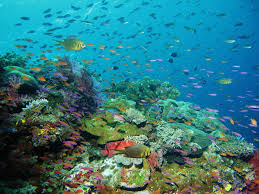

Environmental Right Group, HOMEF Advocates Protection Of Biodversty In Water Bodies Of The Niger Delta
FeaturedNews October 5, 2021 Arodiegwu Eziukwu

The Health of Mother Earth Foundation (HOMEF) on Thursday restated its commitment and solicited support for defence of the biodiversity of the water bodies in the Niger Delta region.
The group urged all those interacting with and utilizing our water bodies to do so with respect and place the wellbeing of the rivers and dependent communities before profit.
HOMEF’s position was contained in a statement issued by Kome Odhomor
Media/Communication Officer of the rights advocacy group and made available to newsmen in Yenagoa.
The statement qquoted HOMEF Director, Nnimmo Bassey, as making the remarks in his keynote address at the official inauguration of River Ethiope Basin institute at the Delta State University, Abraka.
“The call to preserve our water bodies is a responsibility for all of us.
“If we fail to protect and preserve our rivers we will continue to have situations where fishers go fishing all day and return with nothing or where coastal communities depend on imported frozen fish for nutrition.” HOMEFstated.
Bassey decried the massive levels of pollution in the Gulf of Guinea, as well as rampant sea piracy in the region.
According to hm, “Those who pollute the rivers and water bodies should be held accountable to ensure that our rivers do not continue to be treated as dump sites.”
Bassey applauded the management of Delta State University and the leadership of River Ethiope Trust Foundation on the their partnership to establish the River Ethiope Basin Institute.
He observed that the river is one of the cleanest in the region and stands out as an example of what our water bodies were like before the arrival of the oil industry and their polluting activities.
Chief Charles Majeroh a foremost Nigerian Architect and community member who gave his goodwill message during the event reportedly gave nsights on ways to preserve the water body.
“The only way to preserve the River Ethiope is to ensure that human waste are not deposited into our rivers and also ensure that there is minimal dredging of the river to enable it breath freely.”
He also urged all business owners around the River Ethiope area to be more intentional in the protection of the water front.
According to the statement, Bassey further tasked that those in academics should listen more to community elders and help pass the knowledge learned to the younger generation.
“A drop of oil can contaminate 25 litres of water. Imagine the extent of pollution in our rivers and ocean by the millions of barrels of oil that has been dumped into them over 63 years of reckless oil activities.”
On his part, Executive Director of River Ethiope Trust Foundation, Urikefe Dafe, stated that the River Ethiope Basin Institute will be a platform for research into the river.
He said the institute will also be a launch pad for the sharing of knowledge and the fight for the recognition of the rights of the river.
“We all have a role in saving the environment.
See Something, Say something,” The statement quoted Dafe as saying.

